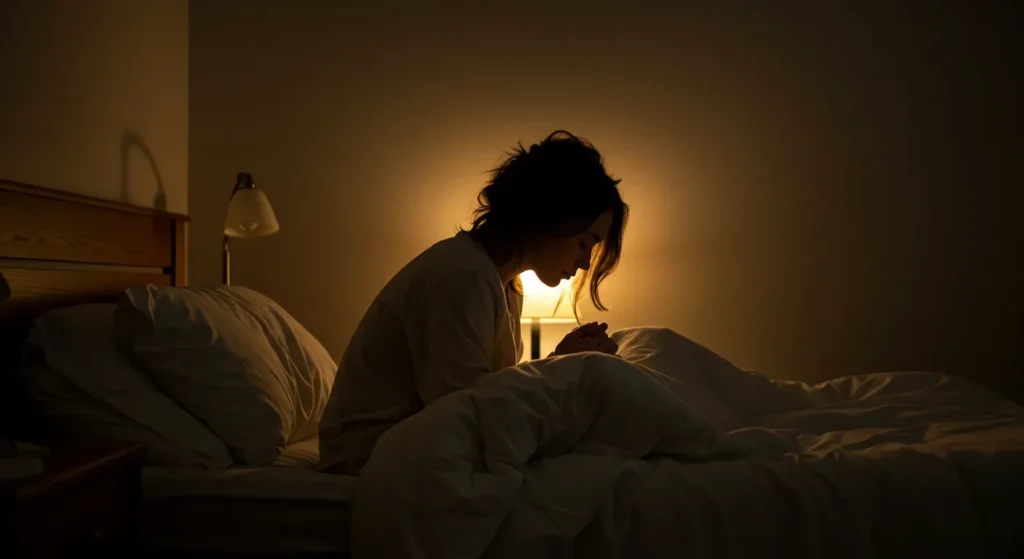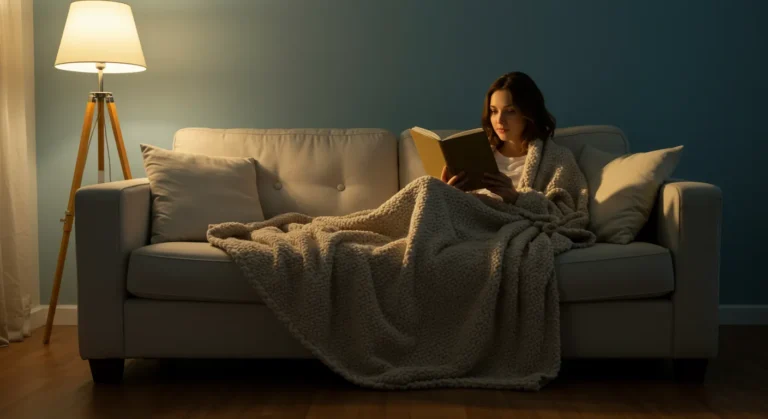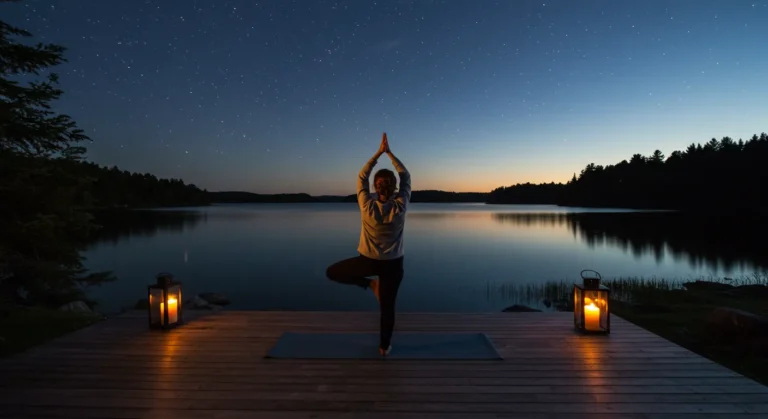How to Fall Asleep Fast: The Real Talk Guide That Actually Works

Look, I get it. It’s 2 AM, you’re exhausted, but your brain has decided now’s the perfect time to replay every awkward conversation from third grade. Sound familiar?
I’ve been there too many times to count. That frustrating dance between wanting sleep desperately and having your mind treat bedtime like it’s coffee hour at a networking event.
How to fall asleep fast? Here’s what I’ve learned after years of trial and error (and way too many sleepless nights): falling asleep fast isn’t magic—it’s a skill you can actually develop.
Why Your Brain Turns Into a Night Owl When You Need Sleep Most
Ever wonder why you can barely keep your eyes open during that afternoon meeting, but the second your head hits the pillow, you’re suddenly analyzing your life choices?
Your brain isn’t trying to torture you (though it might feel that way). Usually, there are real reasons behind those restless nights:
Stress is the biggest sleep thief. When you’re worried about tomorrow’s presentation or replaying today’s drama, your nervous system stays in high alert mode. It’s like trying to sleep while someone’s honking a car horn outside your window.
Your circadian rhythm is probably confused. If you’re scrolling TikTok until midnight or having coffee at 4 PM, you’re basically telling your internal clock to take a hike. Your body doesn’t know if it’s supposed to be awake or asleep.
Lifestyle habits sneak up on you. That glass of wine might make you feel drowsy initially, but alcohol actually disrupts your sleep cycles later in the night. Same goes for late dinners—your digestive system doesn’t take a break just because you want to sleep.
How to Fall Asleep Fast: The Techniques That Actually Work (No Sheep Counting Required)
After testing countless methods (some ridiculous, others surprisingly effective), here are the ones that consistently help people fall asleep faster:
The 4-7-8 Method: Your New Best Friend
This breathing technique sounds almost too simple, but stick with me. Breathe in through your nose for 4 counts, hold it for 7, then exhale through your mouth for 8 counts.
I was skeptical until I tried it during a particularly stressful week. By the third round, my racing thoughts had slowed to a gentle crawl. The science backs it up too—this pattern activates your parasympathetic nervous system, basically telling your body “Hey, it’s safe to relax now.”
Progressive Muscle Relaxation: The Full-Body Reset
Start with your toes. Seriously. Tense them up for 5 seconds, then let go completely. Work your way up—calves, thighs, glutes, stomach, shoulders, face.
It sounds tedious, but by the time you reach your forehead, your body feels like it’s melting into the mattress. Plus, it gives your mind something specific to focus on instead of spiraling into tomorrow’s to-do list.
Mental Imagery That Actually Works
Forget counting sheep—your brain is too smart for that outdated trick. Instead, create a detailed mental movie of somewhere peaceful.
I like imagining I’m floating on a calm lake at sunset. Not just the visual, but the feeling of warm water, the gentle lapping sounds, even the smell of pine trees nearby. The more senses you engage, the better it works.
Consistency is Your Secret Weapon
Here’s the thing nobody tells you: your body craves routine more than a toddler craves goldfish crackers. Going to bed and waking up at the same time (yes, even on weekends) trains your internal clock.
I know, I know—sleeping in on Saturday feels like a basic human right. But after sticking to a consistent schedule for a few weeks, you’ll actually start feeling naturally tired at bedtime instead of fighting your body every night.
Natural Sleep Aids That Don’t Require a Prescription
Sometimes you need a little extra help, and that’s completely normal. Here are some gentle options that work well for most people:
Herbal Teas: The Cozy Route to Sleep
Chamomile isn’t just Instagram-worthy—it contains compounds that bind to the same brain receptors as some sleep medications. Valerian root tea is another solid choice, though fair warning: it smells like dirty socks but works surprisingly well.
Melatonin: Timing is Everything
Melatonin supplements can be game-changers, especially if you’re dealing with jet lag or shift work. But here’s the catch—timing matters more than dosage. Take it 30-60 minutes before you want to feel sleepy, not right as you’re getting into bed.
Magnesium: The Relaxation Mineral
This one’s been a personal favorite. Magnesium helps relax muscles and calm the nervous system. I take it about an hour before bed, and it’s like someone turns down the volume on my anxiety.
Creating Your Sleep Sanctuary
Your bedroom should feel like a retreat, not a reminder of everything you need to do tomorrow. Here’s how to set yourself up for success:
Temperature matters more than you think. Around 65-68°F is the sweet spot for most people. Your body naturally drops its core temperature as bedtime approaches, so a cool room works with your biology instead of against it.
Darkness is non-negotiable. Even small amounts of light can interfere with melatonin production. If blackout curtains aren’t an option, a good sleep mask works wonders.
Silence the world. If you can’t control outside noise (hello, city living), white noise machines or even a simple fan can create a consistent sound buffer.
Banish the blue light. I know your phone is basically an extension of your hand, but screens before bed are sleep killers. The blue light tricks your brain into thinking it’s still daytime. Try reading an actual book instead—remember those?
When Nothing Seems to Work
Sometimes, despite your best efforts, sleep remains elusive. Don’t panic. This happens to everyone occasionally.
If you’re lying awake for more than 20 minutes, get up. Do something quietly relaxing in dim light until you feel sleepy again. Fighting with your bed rarely ends well.
And if poor sleep becomes a regular pattern affecting your daily life, it might be time to chat with a healthcare provider. Sleep disorders are real, treatable conditions—not personal failures.
The Bottom Line
Learning how to fall asleep fast isn’t about finding one magic trick. It’s about building a collection of strategies that work for your unique situation and lifestyle.
Start small. Pick one technique that resonates with you and try it for a week. Once that becomes natural, add another. Before you know it, you’ll have your own personalized toolkit for better sleep.
Your future well-rested self will thank you. Trust me on this one—there’s nothing quite like waking up actually refreshed instead of feeling like you’ve been hit by a truck. If you’re curious about how a good night’s rest can truly make a difference, you might enjoy exploring our Ultimate Guide to Deep Sleep.
Sweet dreams!
Disclaimer: The information provided is for educational purposes only, not a substitute for professional medical advice. Always consult a healthcare professional.







